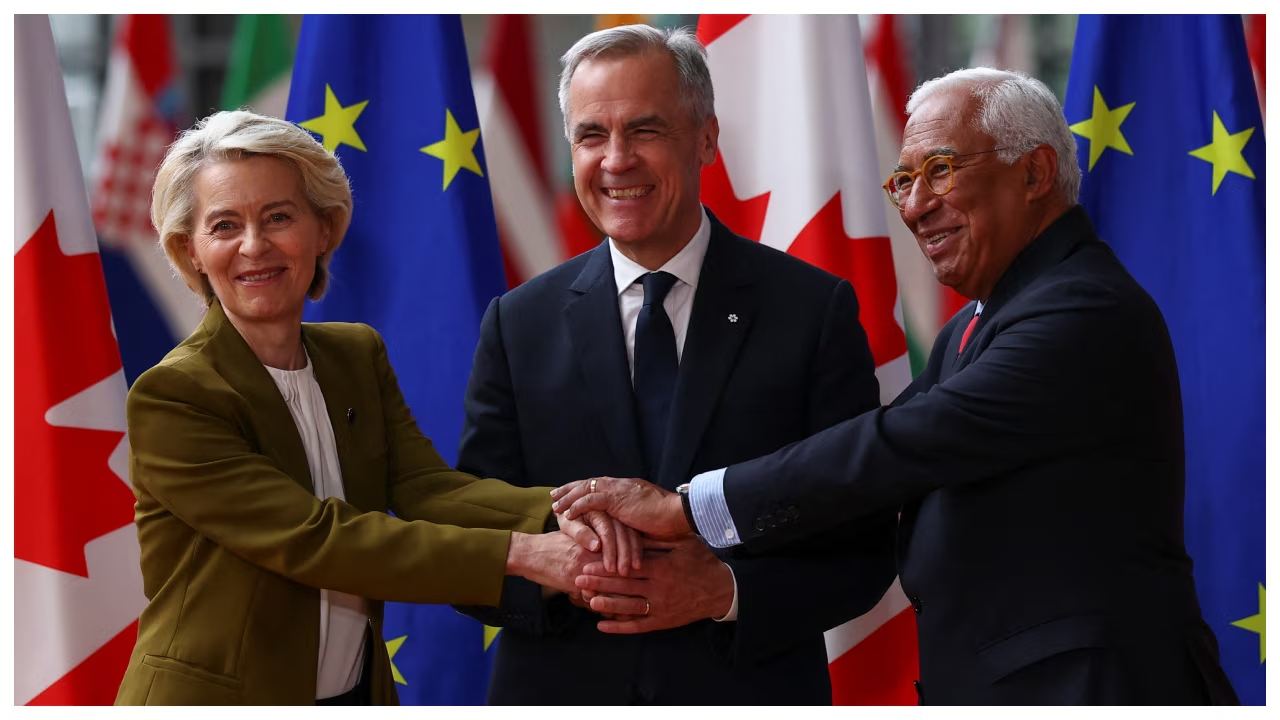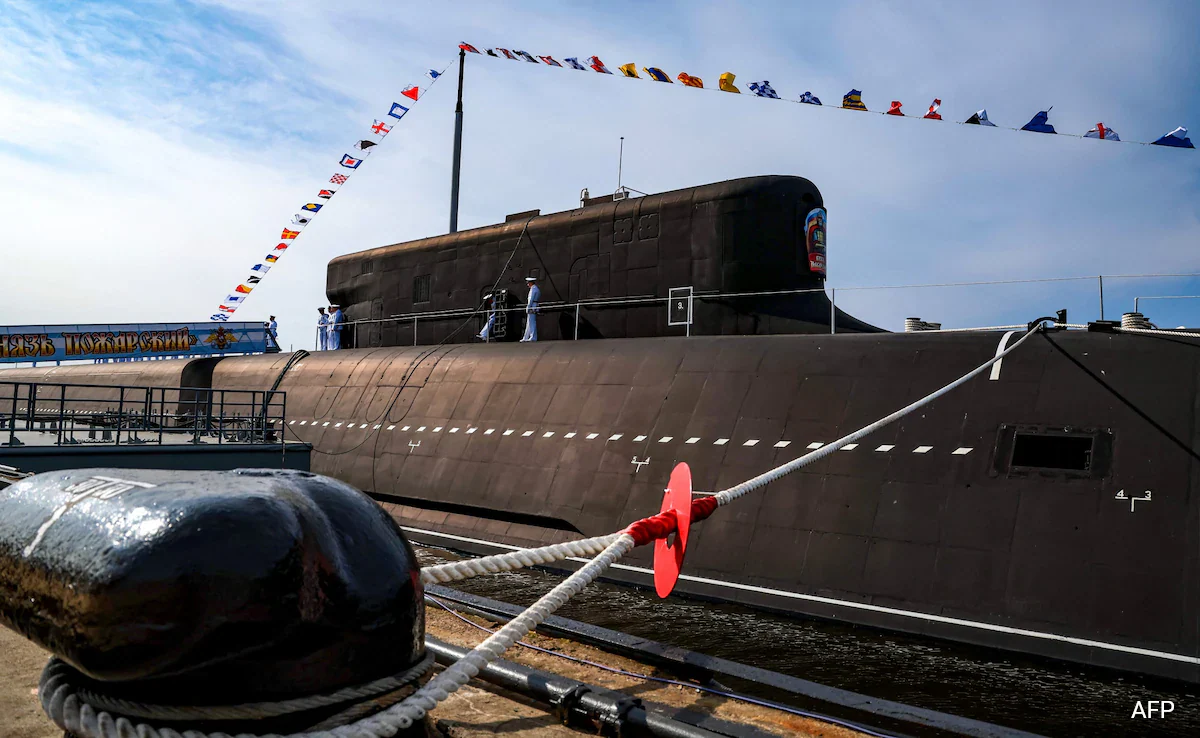
The geopolitical landscape is constantly shifting, with nations forging alliances and partnerships to bolster their security and strategic interests. Recently, **Canada’s move to establish a defence pact with the European Union (EU)** has become a subject of intense discussion among geopolitical analysts and policymakers. While this development underscores Canada’s commitment to multilateral security frameworks, it also raises a pressing question: **Could this new alliance provoke a reaction from former U.S. President Donald Trump?**
To understand the implications of Canada’s EU defence pact, it is essential to explore the intricacies of international alliances, the historical context of U.S.-Canada relations, and the broader implications for North American and transatlantic security dynamics.
The Context of Canada’s Defence Initiative
In recent years, Canada has been actively redefining its international security posture. Historically, Canada’s military and foreign policy have been closely aligned with U.S. interests, often acting as a reliable partner within NATO and other security alliances. However, with the rise of the EU as a more autonomous geopolitical actor, Canada’s engagement with the EU signifies a strategic move to diversify its alliances beyond the North Atlantic.
According to reports, **Canada’s recent efforts to deepen its defence collaboration with the EU** involve several initiatives, including joint military exercises, intelligence sharing, and diplomatic coordination on global security issues. This alignment aims to:
- Enhance Canada’s strategic partnerships beyond the traditional Anglo-American sphere.
- Position Canada as a key player within a broader, multilateral security framework.
- Take advantage of the EU’s capabilities in peacekeeping, crisis management, and technological innovation.
This move is seen as an effort by Canada to **assert its independent foreign policy** and **reduce over-reliance on U.S. security guarantees** amid shifting global power dynamics.
Historical Relations Between the U.S. and Canada
While U.S.-Canada relations have historically been friendly and cooperative, they have not been without their tensions. Traditionally, the U.S. has viewed Canada as a close neighbor and a strategic partner, especially during the Cold War and in subsequent security alliances. However, the rise of protectionist policies, nationalist rhetoric, and skepticism toward multilateral institutions during the Trump administration created a strain in U.S.-Canada relations.
Donald Trump’s approach to foreign policy was characterized by:
– Prioritization of American interests,
– Skepticism toward NATO and international agreements,
– Advocacy for “America First,” which sometimes led to tensions with allies.
Given this context, any move by Canada to **strengthen ties with the EU** or pursue an independent security path might be perceived by the Trump administration as a challenge or a sign of waning U.S. influence in the North American security sphere.
Will Canada’s EU Defence Pact Trigger a Trump Response?
The core question is whether Canada’s new defence pact will provoke a direct response from Trump or his administration. Several factors suggest that such a response could be plausible:
1. Strategic Significance and Messaging
– Canada’s moves could be interpreted as a **nudge towards European strategic independence**, potentially undermining U.S. leadership or influence in the Western alliance.
– The U.S., under Trump, often viewed multilateral agreements with suspicion, perceiving them as diluting American sovereignty or strategic primacy.
2. Economic and Military Implications
– The alliance might influence Canada’s military procurement and budget priorities, aligning more with European innovations rather than U.S. systems.
– Any perceived challenge to American dominance could prompt Trump to **exert diplomatic or economic pressure** to reaffirm U.S. influence.
3. Political and Diplomatic Repercussions
– Trump’s stance on international alliances, especially in the context of NATO and trade relationships, suggests a low tolerance for “alliances that bypass or diminish U.S. involvement.”
– Such developments might lead to:
- Diplomatic pushback or rhetoric aimed at discrediting the pact.
- Possible negotiations or threats to leverage Canada’s dependency on U.S. security guarantees.
Possible Scenarios and Outcomes
The potential reactions from the Trump camp could vary, depending on how the relationship unfolds and the broader geopolitical environment. These scenarios include:
Scenario 1: Diplomatic Friction and Rhetoric
Trump or his successors may publicly criticize Canada’s EU alliance, framing it as a threat to U.S. interests or a sign of divided Western unity. This could manifest in:
– Strong diplomatic statements,
– Increased tariffs or trade barriers, or
– Military readiness alerts.
Scenario 2: Policy Retaliation
In a more aggressive stance, policies could be enacted to:
– Reduce U.S. military cooperation with Canada,
– Reassess commitments to NATO or other alliances, or
– Offer incentives to dissuade Canada from strengthening its ties with the EU.
Scenario 3: Defensive Response from Canada and Allies
Alternatively, Canada may double down on its policy, asserting its independence and resilience. This could involve:
– Formalizing the EU security arrangements,
– Engaging further with European military institutions,
– Seeking to deconflict its policies from U.S. interests.
Broader Implications for North America and Europe
The friction or cooperation resulting from Canada’s defence pact will have far-reaching consequences:
– It may **redefine the strategic landscape** between North America and Europe.
– It could **spur other countries** to pursue similar independent security arrangements.
– The U.S. may feel compelled to **reassert its influence** in Western alliance structures.
**In summary**, Canada’s move towards a defence partnership with the EU is a bold step showcasing its desire for a more autonomous foreign policy. While it enhances Canada’s global security role, it also risks triggering a response from the Trump administration, which often perceives such moves as threats to U.S. dominance.
Conclusion
The dynamic interplay between Canada’s emerging EU alliance and potential U.S. responses exemplifies the complex geopolitics of the 21st century. As nations seek to secure their interests amid shifting power centers, expectations of reactions and counter-reactions will only intensify. The evolving relationship will be pivotal in shaping the future of transatlantic and North American security alliances.
For more updated news please keep visiting Prime News World.









